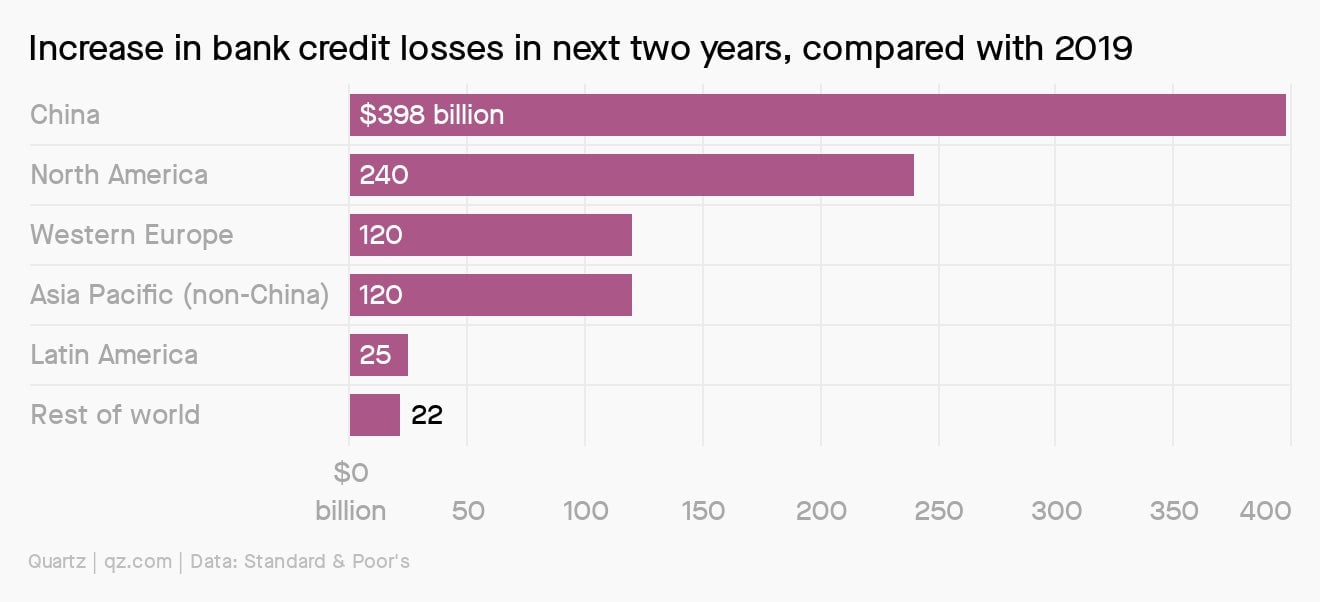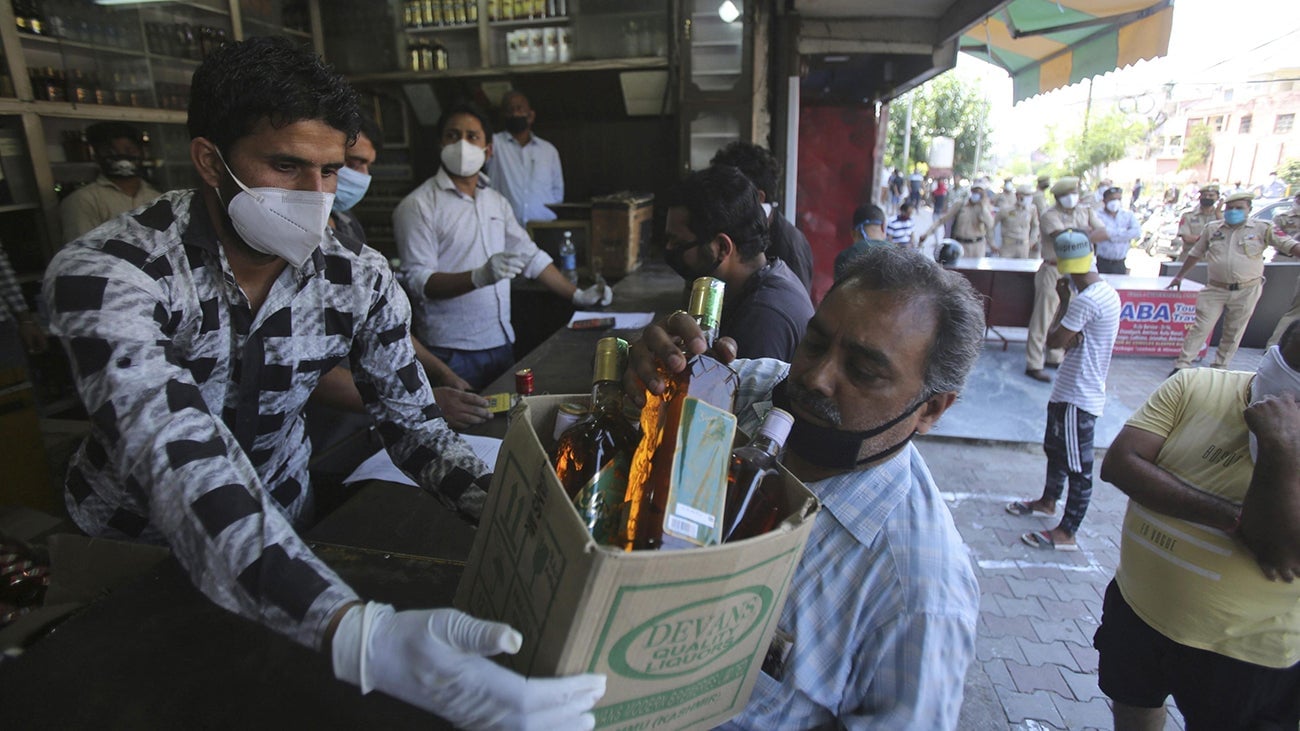Tesla profit, China’s banks and rockets, another solar system
Good morning, Quartz readers!

- Good morning, Quartz readers!
Here’s what you need to know
Tesla finally made an annual profit. For the first time, the electric car maker was in the black for the fourth straight quarter, making just over $100 million despite overall revenues falling below $6 billion. The company also announced that its next factory will be in Travis County, Texas.
US senators issued a warning to the UK. A new 2% tax on the revenues of tech companies that “derive value from UK users” came into effect yesterday, but members of a Senate committee said that it “unnecessarily complicates the path forward for a US-UK trade deal (paywall).”
The US ambassador to the UK denied making racist and sexist remarks. Woody Johnson, a billionaire who also owns an NFL team, tweeted his denial of a CNN report that alleged “racist generalizations about Black men” and “cringeworthy” comments about women.
The US president promised to send federal agents to more cities. Donald Trump, along with attorney general William Barr, unveiled a plan for enforcement in Democrat-run cities such as Chicago and Albuquerque that, according to the president, are “plagued by violent crime.”
China’s bank losses, and other news
Banks around the world could lose $2.1 trillion through 2021, an increase of more than $900 billion, according to Standard & Poor’s. Almost $400 billion of that is forecast to come from Chinese institutions, compared with a $360 billion increase for those in North America and Western Europe combined.
China’s outsize losses (✦ Quartz member exclusive) reflect the sheer size of its mammoth banking sector which, in terms of customer loans, is as big as the US, Japanese, German, and UK systems combined, say S&P analysts.

Mike Pompeo gives a policy speech on China tonight. The US secretary of state is expected to discuss the future of the free world, a day after the US ordered the closure of the Chinese consulate in Houston.
Under pressure, Nike and Apple made statements about the Uyghur situation. They’re “monitoring” and “conducting ongoing diligence,” after campaigners urged them to cut ties with allegedly exploitative suppliers.
China’s equivalent to Nasdaq launched its index today. STAR Market, which is a year old and not to be confused with the chain of grocery stores, showed double the gains of its US counterpart this year.
China’s Mars mission blasted off. Tianwen-1 launched shortly before 1pm local time, Chinese media said. A successful mission would make it just the third country, after the US and USSR, to land on Mars.
Indians and alcohol

When India’s lockdown ended, long queues at liquor shops rapidly developed across the country. To reduce crowds and demand, many states added additional taxes to alcohol.
Some of the taxes are still in place, and according to a survey of residents in Rajasthan, West Bengal, and Telangana:
🍺 About half say they’re considering cheaper options because of the tax.
🍻 Only respondents in Rajasthan said they would buy more liquor if the additional fees were lifted.
🚚 Most people would order alcohol for delivery if it were allowed.
On an average, India’s states and union territories collected about $2 billion in monthly taxes from the sale of liquor in 2019. In June, tax collection from the sale of alcohol in states like West Bengal was less than 10% of 2019 levels.
✦ For members: Diversity as a competitive advantage
Dating and relationships are a common conversation topic for many coworkers—but particularly so at S’More, a New York City-based dating app founded last year.
The app’s head of operations, Sneha Ramachandran, recalls one eye-opening exchange she had with her teammates about cultural norms surrounding the questions people ask each other on dates. One woman explained that in her home country of South Africa, it’s common to ask early on whether the other person has been tested for HIV. For Ramachandran, who’s originally from India, “if someone asked me that, I would be so offended—that was my bias.”
Find out more about how diversity serves as a competitive advantage at S’More and how design choices can help combat bias in our field guide to creating an antiracist company.
✦ Get your own competitive advantage—with access to all our articles, presentations, field guides, and workshops—by signing up for a Quartz membership, now 40% off.
We’re obsessed with sunscreen
Sunscreen protects the skin from the undesirable effects of the sun’s ultraviolet (or UV) light—namely, sunburn. Constant exposure to the sun or a handful of intense burns can lead to melanoma. But in an effort to push back against the tanning industry, dermatology associations have made blanket statements that everyone needs sunscreen any time they venture outside. Turns out, the science is a little more complicated than that. Apply another layer (of knowledge) with the Quartz Weekly Obsession.
Surprising discoveries
Here’s the first picture of a solar system like our own. It’s about 300 light years away.
Taiwanese police returned a lost Nintendo Switch with the help of Animal Crossing. Officers played the hit game to send messages to the owner’s friends.
Historical societies are sharing historical recipes. They’re hoping century-old cooking instructions can help people feel connected during the pandemic.
Scientists may have found a cancer crystal ball. A new blood test was able to detect some cancers up to four years before patients had symptoms.
An airline carried on with empty planes. Asiana is trying to keep its pilots certified.
Editor’s note: A few readers reached out about some of the language in yesterday’s Brief, specifically “Houston, we have a Chinese problem” and a description of a new women’s soccer team as “the hottest new accessory.” We appreciate your feedback, and thank you for reminding us to choose our words more carefully. 🙏
Our best wishes for a productive day. Please send any news, comments, 19th-century lemon cake, and our lost devices to [email protected]. Get the most out of Quartz by downloading our app on iOS and becoming a member. Today’s Daily Brief was brought to you by Hasit Shah, David Yanofsky, John Detrixhe, Katherine Ellen Foley, Liz Webber, and Max Lockie.